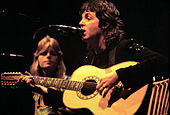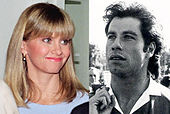A request that this article title be changed to List of UK singles chart number ones of the 1970s is under discussion . Please do not move this article until the discussion is closed. |
| UK Singles Chart number ones |
|---|
| UK Singles Chart |
| Other charts |
| Related |
The UK Singles Chart is the official record chart in the United Kingdom. In the 1970s, it was compiled weekly by the British Market Research Bureau (BMRB) on behalf of the British record industry with a one-week break each Christmas. [1] Prior to 1969 many music papers compiled their own sales charts but, on 15 February 1969, the BMRB was commissioned in a joint venture by the BBC and Record Retailer to compile the chart. BMRB compiled the first chart from postal returns of sales logs from 250 record shops. [2] The sampling cost approximately £52,000 and shops were randomly chosen and submitted figures for sales taken up to the close of trade on Saturday. The data was compiled on Monday and given to the BBC on Tuesday to be announced on Johnnie Walker's afternoon show and later published in Record Retailer (rebranded Music Week in 1972). [1] However, the BMRB often struggled to have the full sample of sales figures returned by post. The 1971 postal strike meant that data had to be collected by telephone but this was deemed inadequate for a national chart, and by 1973 the BMRB was using motorcycle couriers to collect sales figures. [1]
Contents
- Number-one singles
- By artist
- By record label
- Million-selling and platinum records
- Songs with the most weeks at number one
- Notes
- References
- Further reading
In terms of number-one singles, ABBA were the most successful group of the decade having seven singles reach the top spot. The longest duration of a single at number-one was nine weeks and this was achieved on three occasions: "Bohemian Rhapsody" by Queen in 1975; "Mull of Kintyre" / "Girls' School" by Wings in 1977 and "You're the One That I Want" by John Travolta and Olivia Newton-John in 1978. Thirteen records were released that sold over one-million copies within the decade and "Mull of Kintyre" also became the first ever single to sell over two-million copies. In doing so it became the best-ever selling single beating the benchmark set by The Beatles' song "She Loves You" in 1963. [3] "Mull of Kintyre" was also the biggest selling song of the decade and was not surpassed in physical sales until 1984 when Band Aid released "Do They Know It's Christmas?". [4]
In 1973, the British Phonographic Industry (BPI) was formed and they began certifying the sales of records at certain thresholds: "silver" (250,000 units), "gold" (500,000 units), and "platinum" (1,000,000 units). [5] [nb 1] In 1977, the BPI held an awards ceremony at Wembley Conference Centre to mark the Silver Jubilee of Elizabeth II. The event cost £25,000, honoured music from the last 25 years and is considered to be the first Brit Awards ceremony. [6] [7]









